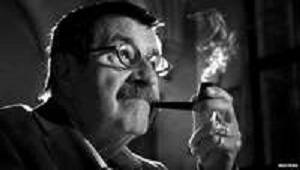World renowned German Writer Günter Grass passed away at a Lübeck-hospital. He was aged 87. He had been hospitalized a few months back due to illness. His end came as a surprise to many, including his trusted secretary Hilke-Ohsoling. He was lucky to have his family members with him when he breathed his last.
About Günter Grass
- Günter Grass is basically a Polish born citizen. He was born on 1927 October-16thin the Danzig free-city.
- His father was Wilhelm-Grass and mother Helene-Grass. His lone sister was Waltraud-Grass, born in 1930.
- He served in the Pro-Nazi SS-squad during his teens. He was placed in Waffen. He was captured by the U.S. forces during II world-war and released in 1946.
- He started his writing-career in the early 1950s.
- His writings are associated with an artistic-movement, known as Vergangenheits-bewältigung, which means accepting the past as it is without any prejudice.
Awards
- He received the Georg -Büchner Prize in 1965.
- He was bestowed with Honorary-Fellowship of royal-Society of Literature in Britain.
- He received the Hermann-Kesten-prize in 1995
- Most notable award was the Nobel-prize for Literature, 1999.
About Günter Grass writing
He has worked in multiple fields during his writing career. He was a Novel-writer, a prolific-poet, an innovative-playwright, a passionate-artist and a dedicated-sculptor. His major works include
- Danzig-Trilogy, which includes the Tin-Drum-1959, Cat & Mouse-1961, and Dog-years-1963. The Tin-Drum is rated as the best.
- The Flunder-1977.
- My-century-1999
- Trilogy of Autobiographical-memories-2006
Controversies
Most of his literary-works are inspired by the II World-war and the post-war world. He was also involved in some controversies for his Anti-Israeli remarks in his poem “what must be said” in 2012. He was also criticized widely for his pro-Nazi views, though they remained largely personal in the post world war-era.





